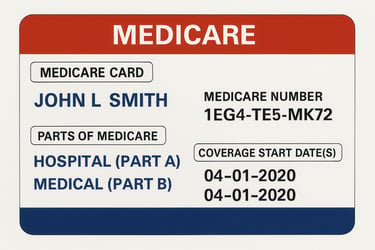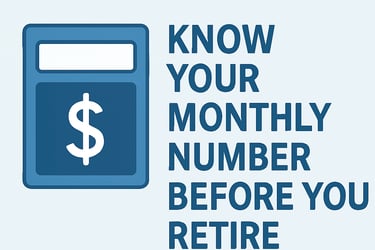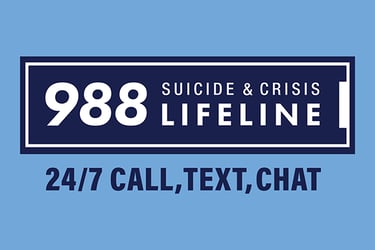Excellent Websites tailored for people aged 55 and older, covering Health, Wealth, Technology, Hobbies, and Lifestyle…
AARP – https://www.aarp.org - A comprehensive site covering retirement planning, health tips, tech tutorials, and lifestyle topics specifically for people 50+. Their articles and discounts are especially valuable.
Next Avenue (by PBS) – https://www.nextavenue.org - A journalism-driven site that explores aging with dignity, purpose, and style. Topics include caregiving, health, money, work, and inspiration.
National Institute on Aging – https://www.nia.nih.gov - Government-backed and science-driven. Offers trusted advice on aging, memory, health conditions, exercise, and mental well-being.
The Silver Life – https://thesilverlife.com - A blog and resource center run by and for seniors. Offers commentary and tools related to relationships, retirement, technology, and humor.
Love to Know: Seniors – https://seniors.lovetoknow.com - Covers hobbies, health, fashion, caregiving, and general lifestyle tips for older adults. Fun and light while still informative.
National Council on Aging (NCOA) – www.ncoa.org - Support Areas: Medicare help, money management, benefits screening, fall prevention, mental wellness. Why it's great: One of the most comprehensive senior support organizations in the U.S.
BenefitsCheckUp.org (Powered by NCOA) - Support Areas: Find local help for food, housing, medication, and utilities. Why it's excellent: Put in your ZIP code and age—they show you what you qualify for.
Eldercare Locator (U.S. Department of Health) – eldercare.acl.gov - Support Areas: Caregiving, housing, home repair, health, transportation, legal. Why it's excellent: Connects you to real people and services in your local area.
Mental Health America – www.mhanational.org = Support Areas: Emotional wellness, depression, loneliness, therapy. Why it's great: They offer free online mental health screenings and resources tailored to older adults.
GoodRx – www.goodrx.com - Support Areas: Affordable medication. Why it's great: It lets you compare prices and print coupons for prescriptions.
Medicare Made Simple: Your First-Time Quick Guide - For anyone turning 65 or getting Medicare for the first time.
Resource - Medicare.gov (2025 Data) For clear answers, plan comparisons, and to download the free “Medicare & You” handbook.
1. Your Enrollment Window is Key - You have 7 months to sign up 3 months before your birthday month, your birthday month, and 3 months after. Miss it? You could pay extra for the rest of your life for certain parts of Medicare.
2. Choose Your Path: Original or Advantage - Original Medicare (Parts A & B): See almost any doctor in the U.S., but does not include dental, vision, or most prescriptions. Medicare Advantage (Part C): Includes Parts A & B, often drugs, dental, and vision, but you will have a network of providers.
3. Do not Skip Drug Coverage (Part D) - Even if you do not take medicine now, get a Part D plan to avoid late fees later. It is cheaper to have it now than to pay penalties down the road.
4. Think About a Medigap Plan - If you choose Original Medicare, a Medigap plan can help cover what Medicare does not, like deductibles and co-pays.
You get the best deal if you sign up within 6 months of starting Part B.
5. Medicare is not Free - You will still pay monthly premiums, deductibles, and co-pays.
Plan so you know what your yearly costs could be.
“Know Your Monthly Number Before You Retire.”
Before you leave the workforce, calculate exactly how much money you’ll need each month to cover housing, food, insurance, healthcare, and fun.
Why it’s powerful:
Most people know their retirement savings total, but not their monthly living costs.
This number tells you whether you can truly afford to retire or if you need to work a bit longer, adjust expenses, or add extra income streams.
It removes guesswork and prevents financial surprises that force many retirees back into the job market.
Here are only a few Trusted Resources for Building Your “Monthly Number”
1. Vanguard's Retirement Expenses Worksheet
A straightforward tool designed to help users list and total expected retirement costs like housing, food, medical care, and more, so they get a realistic picture of monthly needs.
Ideal for creating a clear idea of how much you’ll need each month in retirement.
(Vanguard)
2. Social Security Administration (SSA) – Retirement Planning Tools
The SSA provides calculators and estimates for your retirement benefits based on your lifetime earnings and the timing of your claim.
It helps people understand how their decisions, such as when to apply for a loan, affect their monthly income.
(Social Security)
3. AARP’s Retirement Calculator
Great for non-financial planners! It allows users to input savings, income sources (like Social Security or pensions), and lifestyle expectations to model what their money might look like in retirement.
(financialmentor.com)
4. Department of Labor’s Retirement Planning Worksheets (USA.gov)
Offers downloadable worksheets to help organize finances, define saving goals, and plan a timeline toward a secure retirement. This is helpful both for individuals and educators like yourself.
(usa.gov)
National Suicide Prevention call 988
Lifeline 800.273.TALK (8255) suicidepreventionlifeline.org
If you need to talk, the 988 Lifeline is here. At the 988 Suicide & Crisis Lifeline, we understand that life's challenges can sometimes be difficult. Whether you're facing mental health struggles, emotional distress, alcohol or drug use concerns, or just need someone to talk to, our caring counselors are here for you. You are not alone.






Inspiration
You didn’t live six decades to settle this. This is the moment you rise, not despite your age, but because of it.
Community
Wisdom
info@over60dam.net
(215) 839-9784
© 2026. All rights reserved.
Empowering Seniors. Strengthening Communities. Elevating Organizations.
Our dynamic, senior-focused workshops bring lasting impact to corporations and community groups alike. Partner with us today, let’s create change that matters.

